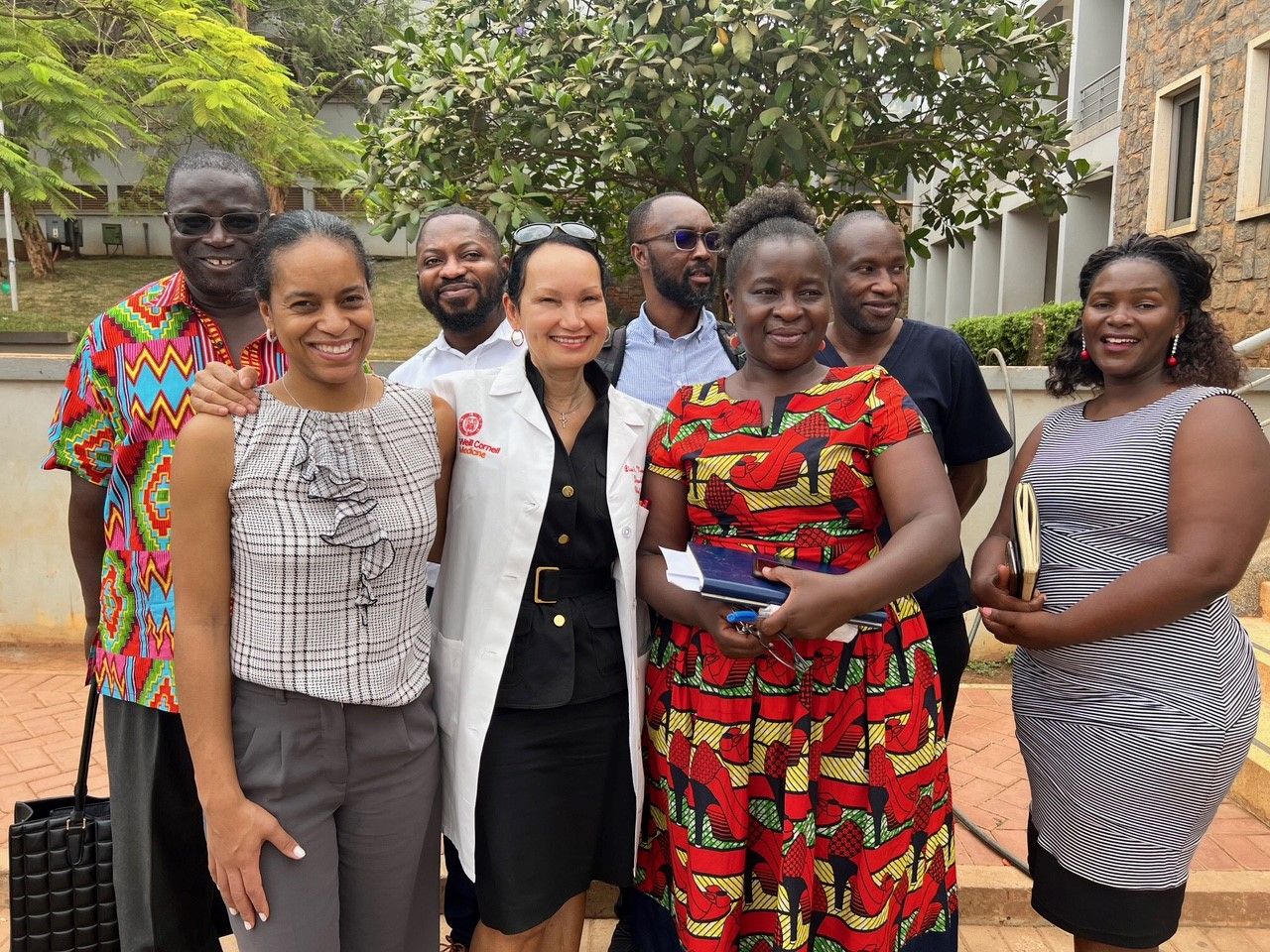WCM Doctors Journey to Africa to Treat Breast Cancer Patients

"This work is my heart and soul," says Dr. Lisa Newman.
Taking care of breast cancer patients is her passion and one that led her and her colleagues to travel nearly 5,000 miles to Africa several times a year to see patients and help train and supply local doctors and clinics.
Her motivation for starting international breast cancer research in Africa was driven by the disparities observed among African American women in the United States.
Her goal is to understand the genetic patterns and tumor biology related to African ancestry. For example, breast cancer mortality rates in African American women are 40% higher when compared to white American women.
Studies have shown that women from Sub-Saharan Africa have higher rates of triple-negative breast cancer than women from other regions. Triple-negative breast cancer refers to a subtype of breast cancer that lacks expression of three hormone receptors: estrogen receptor, progesterone receptor, and human epidermal growth factor receptor 2. This observation has led researchers to investigate the genetic patterns and other factors contributing to these differences.
The program has expanded beyond research to fostering collaborations, training programs, and local patient care. The Weill Cornell Medicine team returned this past year when Covid-era travel restrictions were lifted. They visited Ghana, Nigeria, Ethiopia, Uganda, and Kenya. The two most recent trips, September of 2022 and February 2023, were whirlwinds as they tried to make up for the missed time.
During the past 20 years, the team has built up a network of researchers and physicians in Africa who work year-round on breast cancer research so that they are constantly doing the work between the research visits. "The work continues even though we're not physically present."
"And it's just, it's very gratifying to be able to take care of the patients in clinic, in the operating room, and to participate in the training program," said Dr. Newman, whose work has inspired other surgeons, like Dr. Vivian Bea, who is passionate about continuing the efforts to improve breast cancer outcomes globally.
Dr. Bea first went on one of the trips in early 2020 and was amazed by the global health program that Dr. Newman had built. Not only has she been able to see and treat patients who may not have had access to that level of care, but also being able to do further research has been rewarding. She plans to follow in Dr. Newman's footsteps and continue these trips.
According to Dr. Newman, it's heartbreaking to see the limited access to supplies taken for granted here in the United States. "Things as basic as buffered formalin to put your surgical specimens in or processing of the tissue, before it gets to pathology, containers to put those specimens in. Because of costs, these basic things are very difficult to come by in Africa."
Those supply issues impact patient care. The physicians in that healthcare system are forced to be resourceful when they make things work with their limited resources and supplies. "It's a huge honor for us to visit and at least try to supplement their resources with the supplies we bring."
Dr. Newman and Dr. Bea have found themselves being inspired to conserve the available resources by those doctors when they are back in the U.S. "It's telling the nurses in our ORs, please don't open that up. I don't need that supply. Let's be thoughtful about the sutures that we use." It is not only a cost-saving approach, but a reminder of how fortunate we are to have access to any supplies needed to treat patients.
In addition to the work on delivering cancer care on a global scale, Dr. Newman was a driving force in the revision of the recommended cancer screening age from 50 to 40.
In 2009, the U.S. Preventive Services Task Force (USPSTF) changed the recommendation to 50 for biannual mammograms. But with consultations and new research, they changed it back to 40 years old for people at average risk for breast cancer.
"If you want to save the most lives from breast cancer, initiating screening at age 40 is the way to go."
When the USPSTF changed its guideline to recommending screening at age 50, it never even mentioned the potential impact this change would have on breast cancer disparities. The possible adverse effect on breast cancer disparities is huge. Dr. Newman explained black women are more likely to be diagnosed with breast cancer at younger ages and are more likely to be diagnosed with biologically aggressive cancers at all ages. The recommendation of mammography screening in a delayed fashion will magnify the already existing disparities.
With the new recommendations, the hope is that primary care doctors can get screenings and diagnoses for their patients without being denied by insurance.
"Outcomes are better when breast cancer is caught early," said Dr. Bea.



